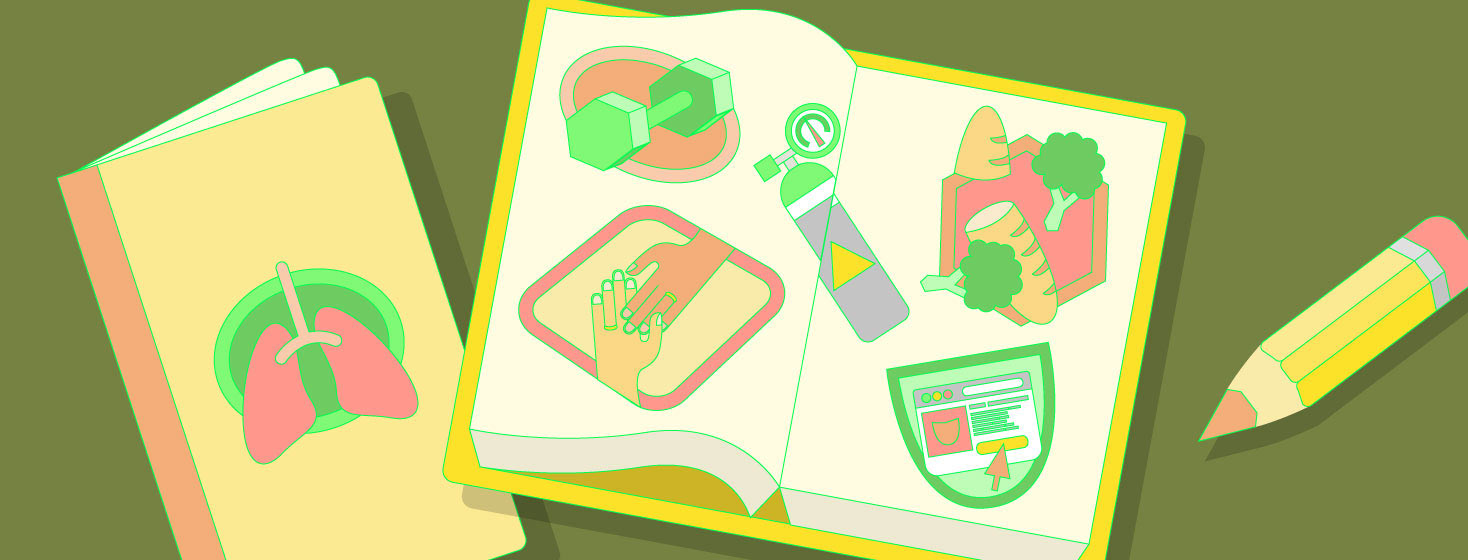My COPD Survival Guide
It has taken a few years to develop a plan of managing my life with COPD. I have jokingly referred to it as my research and development program, constantly fine-tuning along the way. This is my COPD Survival Guide.
Knowledge
How could I possibly manage a disease without educating myself about it? I consider myself lucky to have an excellent medical team. However, their time is limited. Through trial and error, I learned a few reputable sites for medical knowledge, such as The Cleveland Clinic, Mayo Clinic, and National Jewish Health. The American Lung Association and the British Lung Foundation also provide me with answers to questions I may have. There are many more available, but these are my first go-to websites when I have any medical questions.
Support
My family, particularly my husband, provides me with daily support. He is my caregiver during bad days or when I am having an exacerbation. I am finally at a point that I no longer need constant help. I am able to care for my home, cook, and take care of my needs, asking for help once in a while.
Support groups are particularly important. I need to have people I can talk with that understand living with this condition. I joined many groups and left many others. Surrounding myself with people that keep a positive outlook keeps me with that same mindset. Eventually, I narrowed my support groups down to three, copd.net, an exercise group, and a daily living group.
Exercise
I have never been one to run off to the gym to exercise, go out jogging, or go to a yoga studio. I had to accept that exercise is a necessary part of managing COPD. In six years, I have completed pulmonary rehab twice, each one comprised of twenty-one sessions. They provided the foundation of a good exercise routine and knowledge. It taught me which exercises were safe for my condition, how to do it properly, checking my oxygen level and heart rate along the way. I was taught how to use my breath to walk up a flight of stairs. I keep a weekly plan for exercising, how long and what time of the day. I log them in my health tracker. I consider exercise an important medicine for COPD, just as my inhalers are.
Diet
We all have different dietary needs and may have other medical conditions that get affected. I am diabetic and must be careful of carbs. A lower-carb plan falls perfectly into my COPD diet. I am lucky that very few foods bother me. I do have to work at eating smaller meals. This is one of my biggest hurdles to get over. I enjoy food of all kinds and trying new ones. I love dining out. I put my dinner on a smaller plate so I am not tempted to overeat. In restaurants, if the meal is large, I ask for a take out box before I begin eating. I put half away to bring home. I will probably always be working on this problem.
Anxiety
I think there is nothing that causes more anxiety than being short of breath. When I’m not, I can create scenarios in my head where I might be. This began my bouts of daily panic attacks, all new to me. I knew the cause but finding a solution proved more difficult. Extensive journaling, meditation, deep breathing, and relaxing hobbies are my go-to for anti-anxiety routines. I journal daily, usually in the morning because I had to replace reading the daily news with something more relaxing. I learned to replace negative inner dialogue with positive. The panic attacks are less frequent. When I do have one, I now recognize it for what it is, using mindfulness techniques to overcome it.
I believe we all need to find our own plan, but it is necessary that we do. For me, it has been the best way to manage a difficult disease that I must live with.
Editor's Note: We are heartbroken to share that Carol passed away in February of 2022. Carol's storytelling and advocacy will be deeply missed, but her legacy lives on through her articles and in all the people she inspired.

Join the conversation